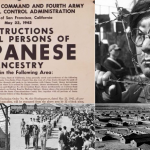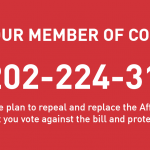Over 1,700 Washington AAPIs Rally in Olympia to Engage State Lawmakers
On February 23, over 1,700 Asian Americans and Pacific Islanders (AAPIs) representing over 20 language groups from all four corners of Washington State took part in an annual trek to our state capitol in Olympia to speak directly with state lawmakers. On their list of things to discuss were topics ranging from education, naturalization and healthcare, to climate change, voting rights and police use of deadly force.
- Take a look at the summary of briefs, full agenda and photos from the day on Facebook.
- Add to the conversation — download the APA Legislative Day postcard or stop by our office to pick up stamped hard copies for yourself and others to send to legislators.
Since 1997, the Asian Pacific Islander Coalition (APIC) has organized thousands to attend Asian Pacific American (APA) Legislative Day with the goal of educating lawmakers about how different issues impact members of the AAPI community, whether, immigrant, refugee or native born.
During a rally between meetings, Governor Inslee addressed attendees as a group, “Here in Washington, we are proud of our values of inclusivity, tolerance, and compassion for all residents. The diversity of languages and cultures in our AAPI community are a critical part of who we are as Washingtonians, and the contributions of AAPIs to our businesses, economy, and community are vital to our success as a state.” Attendees then went on to meet with state legislators representing their districts to discuss these important issues in more detail.
“Our Asian American and Pacific Islander communities comprise people of color and include all genders, immigrants, refugees, citizens, people of all major religious traditions, people of all income levels, people with disabilities, and people on the front lines of fighting climate change. APA Legislative Day is a major civic engagement opportunity for our multilingual community to communicate the issues important to our community to our legislators. Our local and state governments directly impact our lives and it’s more important than ever that we connect with our elected officials directly to voice our ideas and concerns, and to support or oppose policies and legislation we care about,” says Diane Narasaki, executive director of Asian Counseling and Referral Service and co-chair of the King County Chapter of APIC.
Since our founding, ACRS has been committed to social justice and cultural competency to combat the impacts of racial inequities faced by AAPI communities. With the passage of the Federal Welfare Reform Act of 1996, thousands of people across the nation were cut off from cash, food and medical assistance programs for low-income, elderly and disabled legal non-citizens. The Act made people who were legal immigrants subject to a five-year bar for most federal public benefits, such as food stamps and Medicaid. Along with other community organizations and partners, we formed the Asian Pacific Islander Coalition (APIC) to counter the anti-immigrant provisions in the Act. That year, ACRS staff and clients along with APIC leaders and community members across the state organized our first Asian Pacific American Legislative Day.
“Thousands of AAPI community members joined the efforts and together, we were successful in getting the governor and legislature to implement state funded programs, such as the State Food Assistance program. Washington State did more than any other state in the nation to support immigrants and refugees, who were no longer eligible for federal programs,” says Tony Lee, APIC King County co-chair.
In today’s increasingly hostile policy climate, ACRS is as determined as ever to continue protecting, serving and lifting the voices of AAPIs across our state. We are already hearing from our clients ranging from youth to our elders, about their fears of family members being deported, the loss of much needed health care, and other threats to their basic needs and personal safety. With critical decisions at the national, state and local levels – we are deepening and broadening our network to better engage communities in our diverse AAPI languages year-round.






